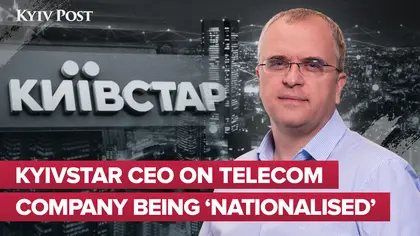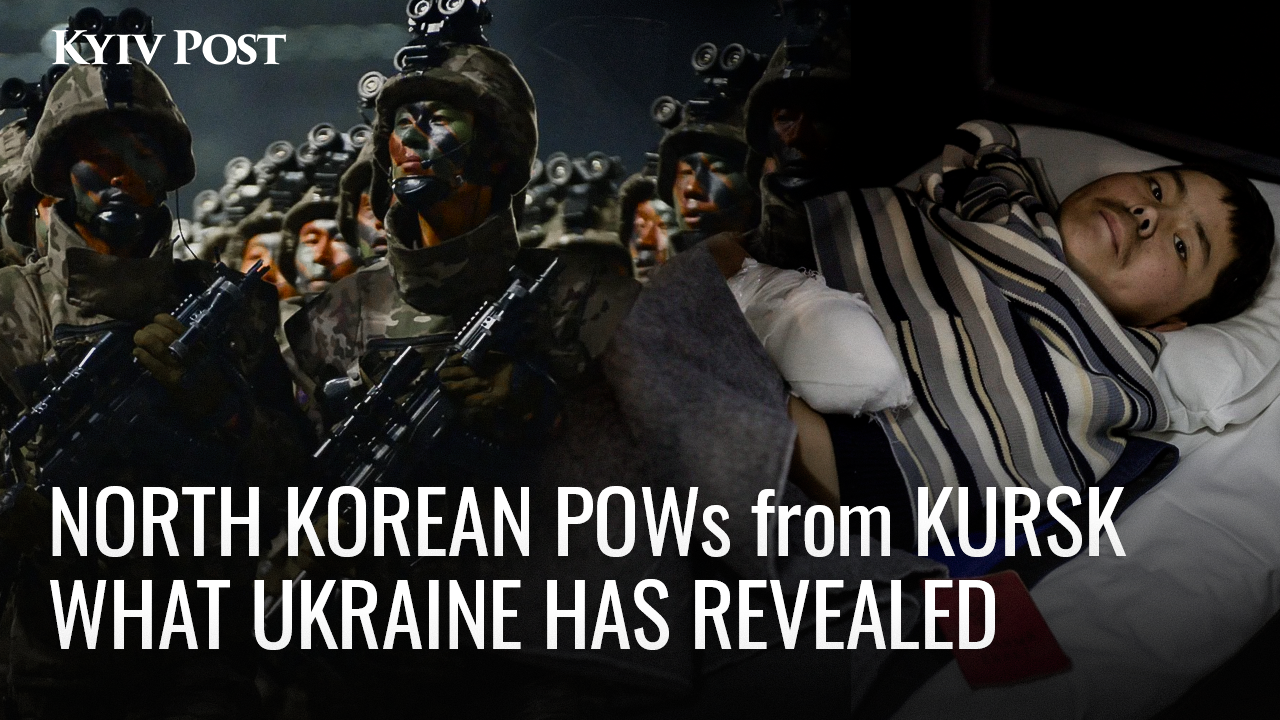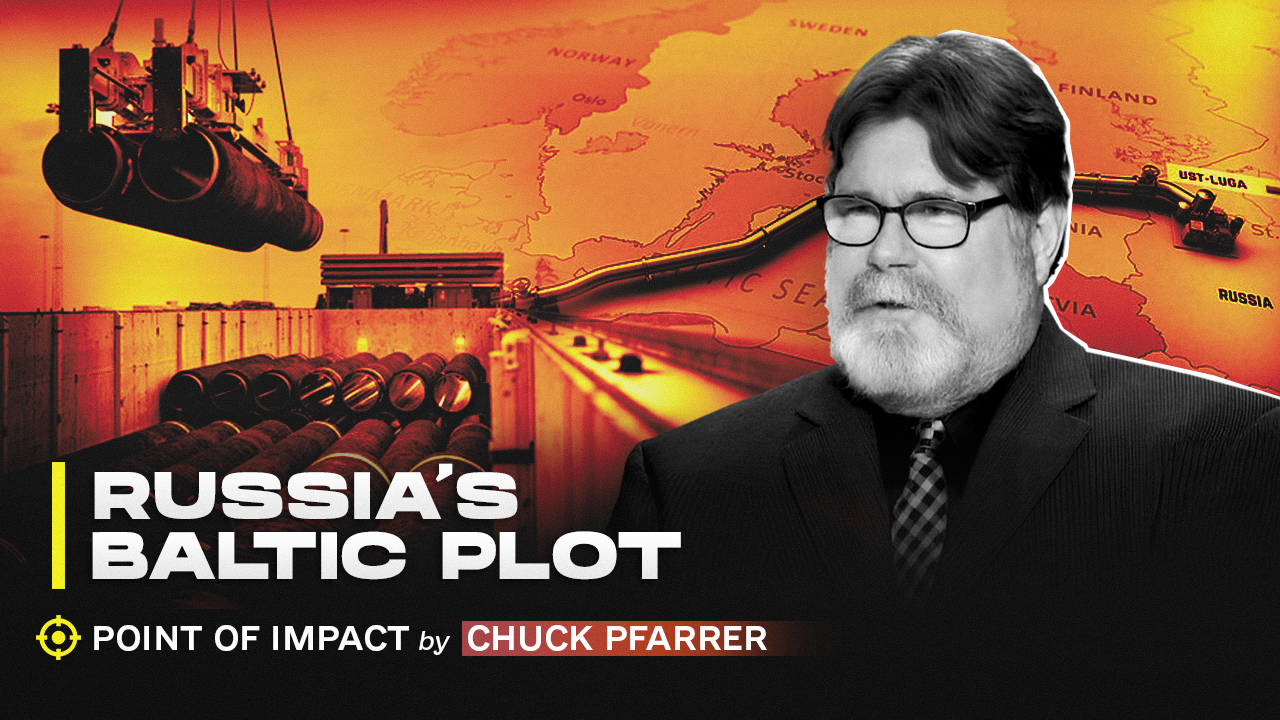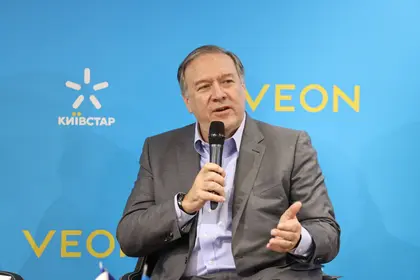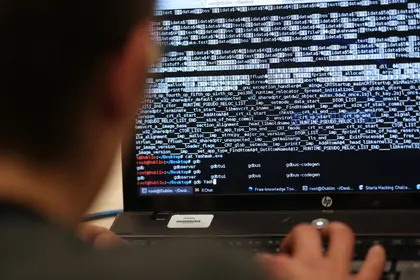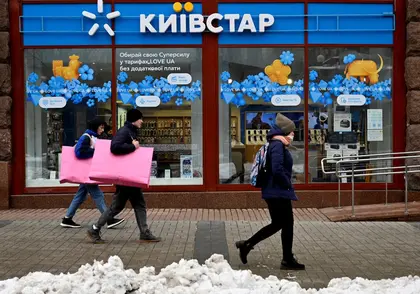Kyivstar CEO Oleksandr Komarov was driving in his car when the he heard news that would upend his entire week, see him have to calm investor nerves and send ripples of concern through the international business community.
On Oct. 6, the Security Services of Ukraine (SBU) announced that Ukrainian courts were seizing all “corporate rights” of three Russian oligarchs, Mikhail Fridman, Peter Aven, and Andrey Kosogov.
JOIN US ON TELEGRAM
Follow our coverage of the war on the @Kyivpost_official.
“I got this news from the SBU Telegram channel,” he told Kyiv Post in an exclusive interview. “We were not told in advance. And I want to underline that so far, neither Kyivstar nor VEON received any formal court decisions.
“So somehow all our understanding is actually based on this announcement.
As Komarov explains, the announcement “indirectly affects Kyivstar” due to the ownership structures of various other companies.
“Kyivstar is the biggest telecom provider in Ukraine,” says Komarov. “[We have] 24 million mobile customers, more than 1 million households, more than 1 million TV customers.
“Kyivstar is an international entity, 100 percent owned by the VEON company,” he says. “VEON is a public international entity that is operating in six countries, including Ukraine and is listed on NASDAQ and Euronext, and [VEON] is partially owned by the Letter One company that is actually partially owned by Mr. Fridman.”

SBU Detains Top Military Psychiatrist Over $1 Million Wartime Corruption Scandal
Clarifying Fridman’s role in Kyivstar, Komarov adds: “There is no role. No. He’s one of the minority investors into the VEON business.”
The recent move against Fridman is part of ongoing attempts by Kyiv to strip Russian oligarchs who help finance Moscow’s full-scale invasion of Ukraine of their assets.
Since February of last year, numerous companies and business interests either owned by the Russian state or majority-owned by Russian oligarchs have been nationalized by the Ukrainian government, such as the Ocean Plaza shopping mall in Kyiv.
Such cases where entities belonged to the Russian state or majority-owned by Russian oligarchs have been relatively uncontroversial, but the Kyivstar case has raised concerns in Kyivstar and among the wider international business community.
Komarov says: “What I feel right now is a kind of third wave [of asset seizures] with, I will say, very controversial cases from my perspective, without a clear, legitimate way how these assets can be nationalized and confiscated.”
“But it looks like that government is considering how to approach this… group of assets.”
Not only is the role of Russian owners far less clear cut, but Kyivstar is a major company with major international investors – a group of people Ukraine is seeking to woo in order to help recover and rebuild from damage cause by Russia’s full-scale invasion.
The SBU’s announcement about the seizure of Fridman’s assets sparked media speculation that the Ukrainian government was seeking to nationalize one of the country’s largest private infrastructure companies.
Kyivstar is the biggest telecom provider in Ukraine.
Anna Derevyanko, Executive Director European Business Association, told Kyiv Post: “Investors, especially international ones, pay special attention to how Ukraine treats investors, how it supports business and how it creates the appropriate conditions for doing business.
“And, especially now, they closely monitor any decisions regarding the work of investors. Therefore, in any decisions related to business the rule of law has to work well,” she said.
“Moreover, it’s very important to respect private property rights as each decision shouldn’t disrupt an investor’s decision to enter the country but show that the country respects and welcomes business.”
Komarov is keen to stress the difference between Kyivstar and other businesses that have been nationalized by the Ukrainian government.
“There’s a very big difference, because when there is a state-owned Russian asset and we are in a war against Russia, I think it's very reasonable [to confiscate it],” he says.
Komarov adds that it’s also a reasonable approach when considering “private entities directly controlled by Russian individuals.”
But he adds: “The biggest difference with VEON is it is an international public entity partially owned and its minority ownership by the structure that is partially owned by a structure that is partially owned by Russian individuals.
“And this is where I see the biggest difference, the biggest difference that there is no legitimate, internationally recognized, legitimate way to nationalize, to confiscate such type of assets.”
[There could] be a kind of big reputational risk for the Ukrainian government and Ukraine.
Since speaking to Kyiv Post in Thursday evening, VEON has issued a statement noting that the SBU has since clarified its initial statement in an apparent attempt to calm investor concerns.
It stressed: “First and foremost, VEON is and remains Kyivstar’s sole and rightful owner. None of the individuals mentioned in the SSU announcement referenced above own any shares in VEON or Kyivstar.
“Underlining the duties to employees, customers and investors, VEON and Kyivstar intend to use all available avenues to protect the rights of VEON and Kyivstar.”
But there are still concerns about the incident and its effect on the business climate both in Ukraine and the wider world where potential investors are.
“[There could] be a kind of big reputational risk for the Ukrainian government and Ukraine,” says Komarov.
“Mainly in the area of the investment climate, because we desperately need huge international support and investments in order to rebuild and recover our country, not just after but during the war.”
When asked if he had heard from his investors over the last few days, he replies: “We have answered plenty of questions during these last two days, trying to calm down the situation a little bit and to channel their support in this specific situation.”
Kyiv Post approached the Ministry of Justice for comment but they did not wish to respond.
Kyivstar has yet to recieve any direct communications from the Ukrainian courts or the government about the issue.
You can also highlight the text and press Ctrl + Enter


